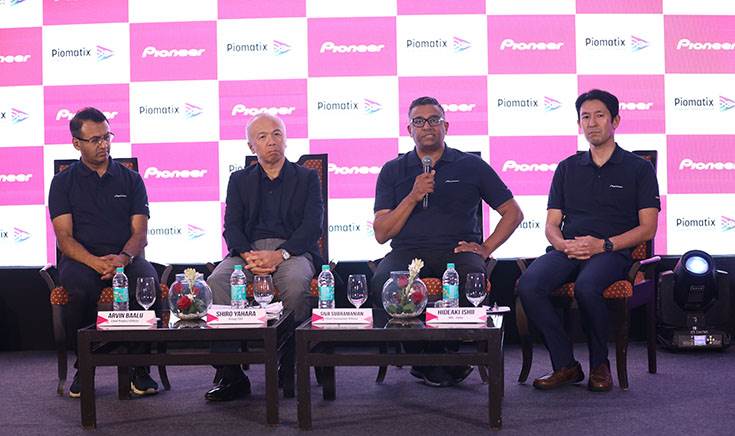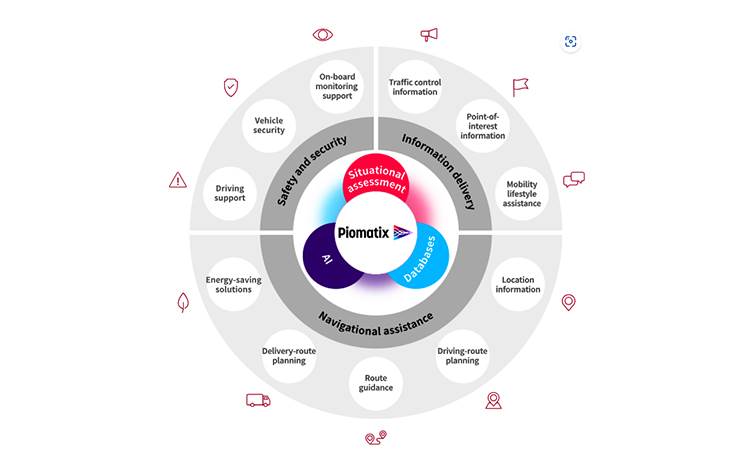Japanese in-car entertainment giant Pioneer Corporation, which is a leader in the Indian aftermarket with its comprehensive range of car audio, visual, and navigation devices, has announced its R&D plans for India.
Under its domestic entity Pioneer India, the company is setting up local R&D centres at its Gurugram and Bengaluru offices, with the intent of driving local innovation for product and solutions development. With the increasing level of vehicle connectivity technologies in made-in-India passenger vehicles, Pioneer is keen to tap the new business opportunity.
Pioneer India, which is to commission these two new engineering centres in the coming months, is already in the process of talent acquisition to develop new products and solutions both for India and overseas markets. The company says that the India R&D teams will work closely with Pioneer’s technology development centres in Japan and elsewhere.
India: a market with immense potential
India’s growing status in the Japanese major’s strategic future growth roadmap is reflected in the fact that the Indian R&D centres will be Pioneer’s sole engineering centres outside of Japan. The key driver behind the company’s strategic move is the immense market potential in India, where it wants to be located closer logistically to its existing and potential customers in terms of direct-OEM supplies.
Given that India witnessed record passenger vehicle sales of 3,88 million units in FY2023, Pioneer clearly is keep to tap demand even as OEMs are upping the ante with speedy rollout of new models across segments.
 L-R: Arvin Baalu, Chief Product Officer, Pioneer India; Shiro Yahara, CEO, Pioneer Group; Siva Subramanian, Chief Innovation Officer, Pioneer India and Hideaki Ishii, Managing Director, Pioneer India.
L-R: Arvin Baalu, Chief Product Officer, Pioneer India; Shiro Yahara, CEO, Pioneer Group; Siva Subramanian, Chief Innovation Officer, Pioneer India and Hideaki Ishii, Managing Director, Pioneer India.
Shiro Yahara, Group CEO of PIoneer, said: “This is the first time we are going out of Japan to set up an R&D centre and such a move requires a convincing confidence about the market. We saw that potential, and there has been a compelling pull from our customers and partners in India. This made us invest into India for being here for the market.”
With the growing premiumisation of the Indian passenger vehicle market, wherein consumers are increasingly opting for latest technologies in their cars, Pioneer says it needed to be in close proximity to its OEM customers to brainstorm with them and offer advanced futuristic solutions.
“India has immense talent and we want to leverage this competency to develop global platforms. We want to, therefore, position India as a global R&D hub,” added Arvin Baalu, Chief Product Officer, Pioneer India.

Piomatix, a mobility AI platform, developed in-house by Pioneer, is designed to provide the right information and navigational assistance to the driver at the right time, based on a constant stream of data collected inside and outside the vehicle.
Pioneer India’s technology centres will focus on developing core-embedded engineering solutions, AI, ML and software systems for its fast-transforming future range of products. With growing connectivity inside vehicles, Pioneer is globally transitioning to its ‘Piomatix’ mobility and artificial intelligence platform. The company is venturing into new electronic devices such as dashboard-mounted connected cameras that offer cutting-edge adaptive human machine interface powered by AI engines.
“Infotainment is a mature area and we are going to increasingly see larger screens, and more sensors which will monitor what is going on with occupants inside vehicles. We will see this steady progression towards the Cloud services that we are putting into Piomatix,” Siva Subramanian, Chief Innovation Officer, Pioneer India told Autocar Professional.
Local-for-local manufacturing
Pioneer, which is a dominant player in the aftermarket and supplies to authorised-OEM dealers, and sees a near-50:50 share of business coming from both the channels, now aims to foray into the direct-OEM space.
The company, which is an authorised in-car entertainment solutions supplier to dealerships of Maruti Suzuki, Toyota Kirloskar Motor, Tata Motors, and Mahindra & Mahindra, aims to now be a supplier at the factory level.

Pioneer India, at present, is an authorised in-car entertainment solutions supplier to dealerships of Maruti Suzuki, Toyota Kirloskar Motor, Tata Motors, and Mahindra & Mahindra.
“There is a huge pull, with customers inviting us to be in India. Our mainstay OES customers are the major four-wheeler customers that we are looking at in terms of direct-OEM supplies as well, ” Yahara told Autocar Professional. “There is always a fine line between cost and quality, and we will offer the right value to our customers,” he added.
While it currently imports its products from manufacturing facilities in Vietnam, Thailand, Phillipines and Japan, Pioneer India aims to venture into local manufacturing of its products in the country. The company says the first phase of this process involves partnering with local suppliers, and it will reveal its agreements with leading automotive components manufacturers in the coming months.
“We will leverage local manufacturing to supply our products first into the aftermarket, followed by OEM supplies,” said Baalu.
Acknowledging the cost consciousness of the market, Pioneer India says it will adopt a modular-platform strategy that would involve scalable products right from the entry-, mid-, to premium levels, be it for infotainment devices or audio solutions for its OEM customers.
“Localisation will play a key role in achieving the cost targets, and after setting up local R&D and introducing a platform approach, it is going to be the third pillar in our drive to enter the OEM space in India,” Baalu concluded.
“We are excited to announce our R&D centres in India in Gurugram and Bengaluru. We aim to develop both aftermarket and OEM products across entertainment, comfort, safety and security domains,” said Hideka Ishii, Managing Director, Pioneer India, at a media event in New Delhi on July 18.
“Aligning with our long-term business goals and strategies, we are establishing a local presence of product development to cater to the specific needs of the domestic market. Having said that, the Indian technology centres will innovate for global markets as well,” he added, which means the local-for-local mantra will also expand to global.
